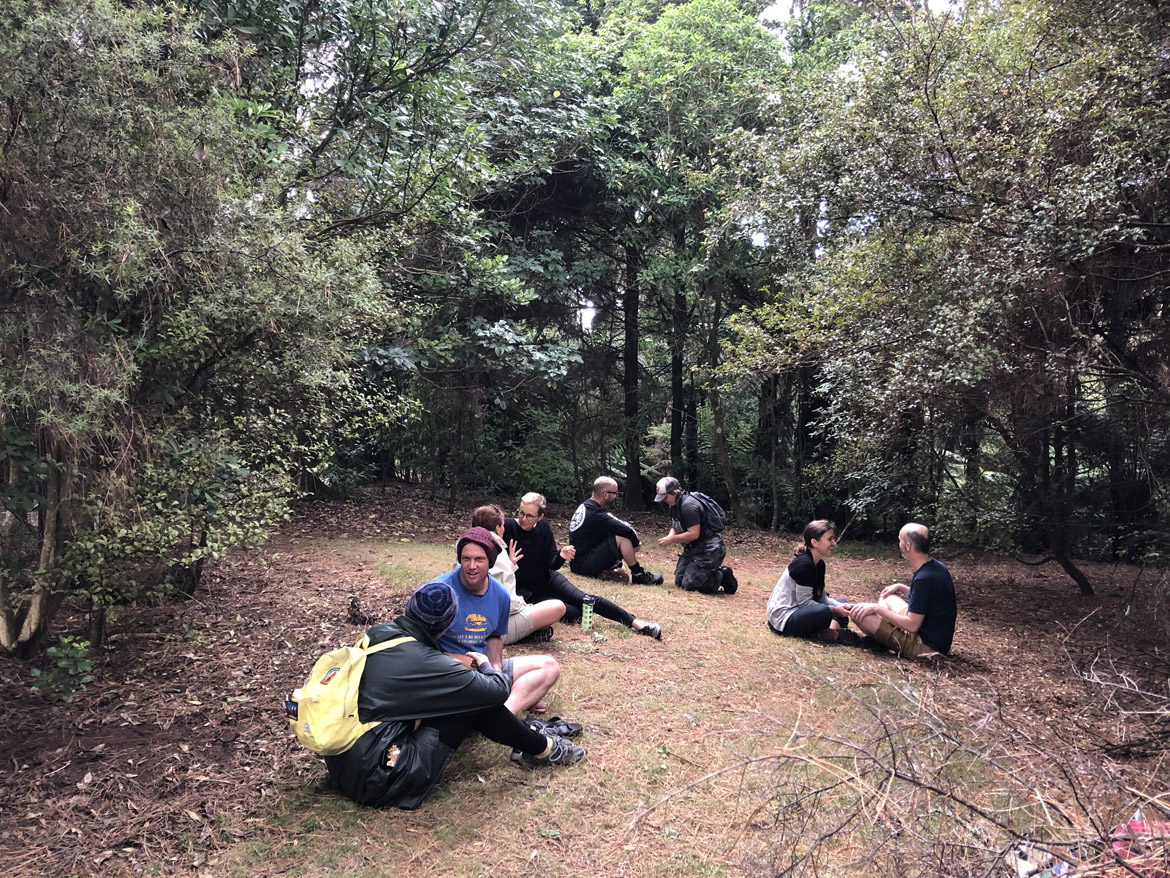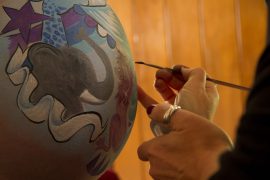
Forest therapy can support parents and parents-to-be in many ways:
- Better physical and mental health
Many and an increasing number of peer-reviewed studies have pointed to the power of nature in improving human physical and mental wellbeing. It does so primarily through reducing stress and boosting immunity, and in parallel or as a result, reduces blood pressure, improves mood, increases ability to focus, accelerates recovery from surgery or illness, improves sleep, increases creativity, improves relationships with friends and family, etc.
An example of such research was led by Yoshifumi Miyazaki from the University of Chiba, who found that leisurely forest walks yield a 12.4% decrease in the stress hormone cortisol, a 7% decrease in sympathetic nerve activity (the nervous system that is in charge of our “fight or flight” mode when we are in danger), a 1.4% decrease in blood pressure and a 5.8% decrease in heart rate, compared to walking in an urban setting. Rachel and Stephen Kaplan who led researchers at the University of Michigan also found that people perform significantly better on cognitive tests and report feeling happier after short walks in greenery. What is perhaps the most fascinating to me, is research led by immunologist Qing Li from the Nippon Medical School in Tokyo. Li found that the level of natural killer (NK) immune cells – which send self-destruct messages to tumours and virus-infected cells – increased 40% among subjects who had spent three days hiking in the morning and afternoon in the woods. The effect stayed around too, the subjects’ NK level was still 15% higher a month later, compared to before they started the hike.
With all the stress and anxiety associated with pregnancy and parenting, a stroll in nature is a simple and accessible way to reset and stay healthy.
- Cultivate mindfulness for birth and parenting
If you are planning for a natural birth and if you have been to a hypnobirthing or prenatal yoga class, you would have learnt how much being mindful and in the present helps during the birthing process. Being mindful means noticing the unfolding flow around us externally, but also inside us, moment by moment. It is also a useful practice in parenting, particularly in observing and understanding your children’s needs, you and your partners’ challenges, and appropriately responding to them.
In forest therapy we focus on our senses and feelings, which anchor us in the present moment. Many participants are regular visitors of the trails where our forest therapy walks are held, but report that the invitations allow them to see things they have never noticed before.
- Connect with your children, born, unborn and lost
Although many families join forest therapy walks with the intention of “training” their children to be more calm and mindful, it is often the parents themselves who experience the more dramatic realisations or transformations. Children are naturally mindful and know how to explore the world with their senses. Whereas for adults, years of education and work in modern society rewire us to focus on our rational, analytical capacity, leaving our intuition and other senses to rust. Through forest therapy invitations, parents rediscover their inner child and experience the world through their children’s eyes (and ears, nose, skin, heart…).
As an expectant mother, I have found myself to be a lot more tuned in to the baby in my womb when I am out in nature – much more so than working at my laptop and listening to Mozart for baby. It is no coincidence that in many cultures Earth is feminine, and I have noticed many similarities between the nurturing power of nature and those of mothers.
Unfortunately pregnancies and births do not always go according to plan. Nature is a full cycle of birth, aging, illness and death. Having a strong connection with nature normalises this cycle, alleviates the fear and can make it easier to surrender, feel the emotions, and heal.
It is important to note that everyone’s experience of forest therapy differs and that there is no right or wrong way of practicing it. While a lot of people feel relaxation, joy, and excitement, some experience anger, frustration, and even grief. The key is to trust that nature will reveal to you what you need and also support you as you go through the process. If you have a mental health condition, please consult your healthcare provider before joining a forest therapy walk.
- Mutual support with other participants
In group walks, forest therapy is both an individual and a collective experience. Invitations can be designed for individuals, pairs or groups. In between invitations, we come into circle sharing. This is where we practice speaking and listening from the heart without judgement, without the need to impress or even “make sense”. Any form of expression: verbal, non-verbal, and even silence is welcomed and there is no pressure in planning ahead what is to be said. Your guide’s role is to hold this space and everyone in the circle bears witness to each other’s journeys. Simple as it may sound, many have reported the power of this practice. In this day and age it makes a much needed complement to the more common way of sharing and supporting through “liking” and commenting on social media posts.
Yaki Wo is an Auckland-based nature and forest therapy guide and international non-profit consultant focusing on sustainability and climate change. See more at www.wilderites.com Facebook @wilderites and Instagram @wilderitesnz










